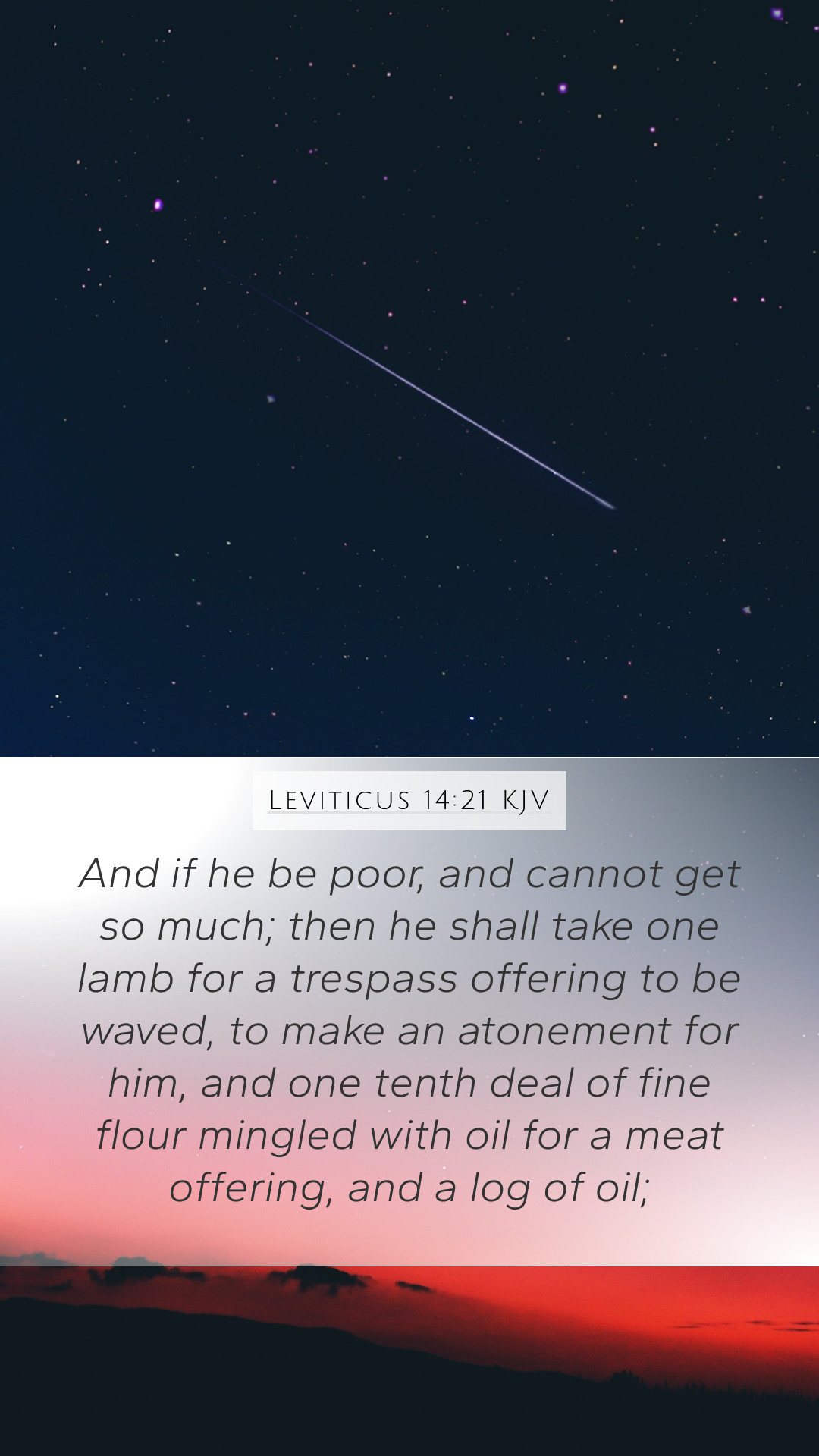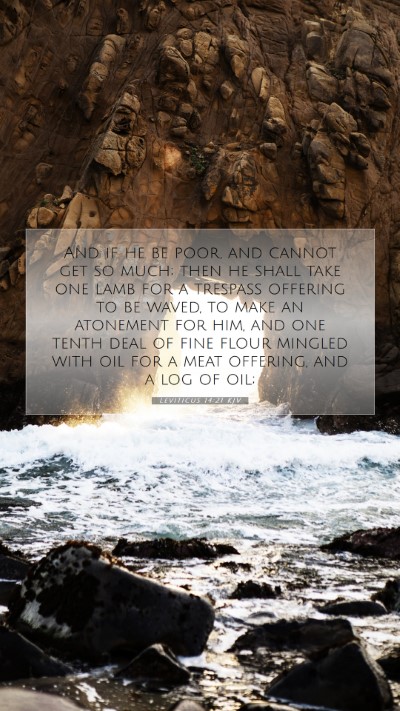Understanding Leviticus 14:21
Leviticus 14:21 states: “And if he be poor, and cannot get so much; then he shall take one lamb for a trespass offering to be waved, to make an atonement for him, and one tenth deal of fine flour mingled with oil for a meat offering, and a log of oil.” This verse provides crucial insights into the provisions made for those who were unable to offer the full sacrifices due to their financial status.
Bible Verse Explanations
The essence of Leviticus 14:21 lies in God's compassion and the intention behind the sacrificial system. This verse underscores the principle that God requires accountability but also provides flexibility to ensure that all people, regardless of their socioeconomic status, have access to atonement and communion with Him.
Key Themes and Insights
- Accessibility of Atonement: The sacrificial system is tailored to be accessible to everyone. Both the wealthy and the poor can find their place within God's requirements for atonement.
- Significance of Offering: The lamb symbolizes substitution, and the accompanying flour and oil offerings reflect gratitude and consecration, highlighting the holistic approach to worship.
- God’s Compassion: This verse exemplifies God's mercy, as He takes into consideration the financial limitations of the poor, ensuring they are not excluded from the process of atonement.
- Community Responsibility: The Israelite community is called to support the less fortunate, reminding believers of their duty to care for others and help them fulfill their obligations to God.
Public Domain Commentaries
Insights from notable commentaries on this verse enhance our understanding:
- Matthew Henry: Henry emphasizes that this provision shows God's care for the poor, ensuring that His ordinances do not exclude anyone based on their economic status. He reflects on the broader implications of such mercy and highlights the importance of proper heart attitude in offerings.
- Albert Barnes: Barnes notes that the specifications of the offerings demonstrate a significant level of care for ritual purity and social equity, pointing out that atonement is made equally accessible to all, signifying that neither wealth nor poverty can separate people from God’s grace.
- Adam Clarke: Clarke adds that the offerings represent an acknowledgment of sin and the need for purification. He also discusses the symbolism behind each component of the offering, linking them back to New Testament revelations of Christ’s sacrificial atonement for believers.
Application of the Verse
When exploring the significance of Leviticus 14:21, believers can reflect on how this principle applies in contemporary Christian life:
- Understanding that God's grace is not limited by social or financial status encourages inclusivity within the church.
- This verse can motivate action toward helping others fulfill their spiritual needs, advocating for the marginalized in society.
- The verse encourages believers to evaluate the heart from which offerings are made, reminding them that true worship goes beyond mere actions and rituals.
Related Bible Cross References
- Exodus 30:15 - The rich shall not give more, and the poor shall not give less, indicating a similar principle of equity.
- Matthew 5:3 - "Blessed are the poor in spirit" resonates with the heart of Leviticus 14:21, affirming God’s care for the humble.
- Luke 21:2-4 - The story of the widow’s offering illustrates the value of sacrificial giving, regardless of amount.
Conclusion
In summary, Leviticus 14:21 is rich with meaning, illustrating God's concern for the poor while emphasizing the importance of atonement through appropriate offerings. By engaging with biblical exegesis and understanding the historical context of this passage, believers gain deeper insight into God's character and His expectations for those who seek a relationship with Him. In exploring Bible verse meanings and interpretations, this verse serves as a pivotal point for understanding divine mercy and communal responsibility.


